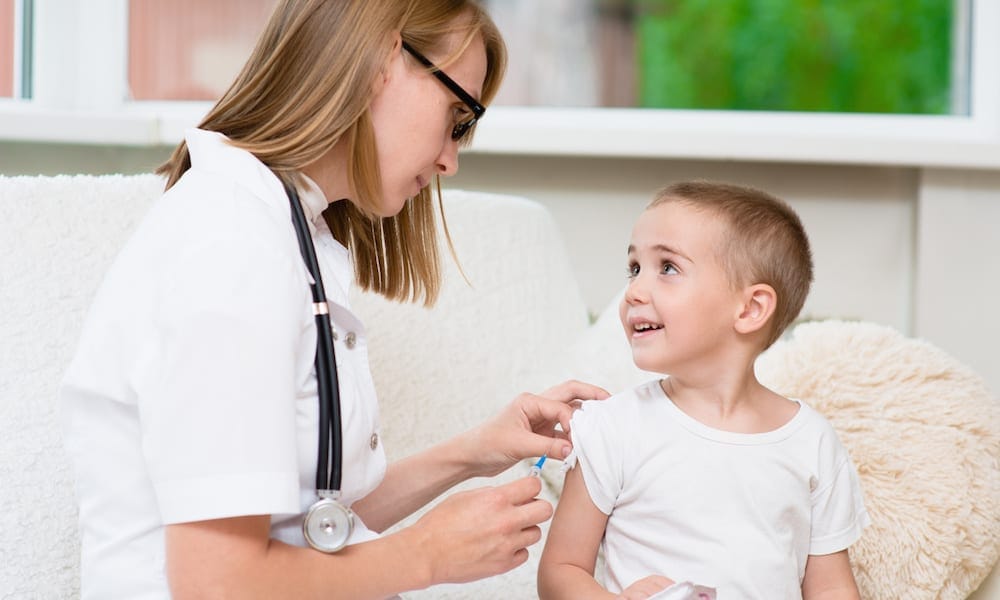If you’re a parent, you’ve probably heard of vaccinations for your child. But why are they so important and why do our kids need them?
Vaccination in Australia
Vaccinations are a safe and easy way to help prevent children catching illnesses which can be really nasty, landing kids in hospital or even leading to them dying. Many diseases such as measles or chicken pox give you immunity once you’ve had them, which means it’s far less likely or even impossible for you to catch them again.
But you don’t have to catch the disease! Vaccination is a way to teach the body to defend itself if it is actually exposed to the disease, without having to get sick in the first place.
We are lucky enough to have vaccines freely available to help prevent against 13 diseases:
- hepatitis B
- diphtheria
- tetanus
- whooping cough
- Hib
- polio
- pneumococcal disease
- rotavirus
- chicken pox
- meningococcal C
- measles
- mumps
- rubella
Many of these vaccines are combined into one shot – so for example, the Infanrix Hexa vaccination protects against six diseases with one vaccination. Vaccinations start at birth, and then additional shots are scheduled at 2, 4, 6, 12 and 18 months, and then again at 4 years old. By this stage, a child is considered to be up to date with their vaccinations.
Find immunisation clinics near you
Because they are a safe and effective method to help protect against disease, every council in Australia recommends that children receive vaccinations in accordance with the schedule. The Australian Government funds the childhood vaccination schedule for all children, because as the old saying goes, prevention is better than cure!
The diseases we have vaccines for are really nasty ones that no one wants to suffer if they don’t have to.
Your GP can provide childhood vaccinations, or you might like to visit a free immunisation clinic.
These free immunisation clinics are located throughout:
Your GP can also help you work out if you and your children are up to date with your vaccinations, and develop a personalised catch up schedule if necessary.
Adults need boosters too
Certain vaccinations are also recommended for adults as well, especially if you fall into an “at risk” group, such as pregnant women or those with a chronic health condition.
It’s recommended that pregnant women receive the flu vaccination at any stage of their pregnancy, in line with the flu shot availability, and a whooping cough booster in the third trimester of every pregnancy.
Your GP can provide further information or have a look at this fact sheet.

